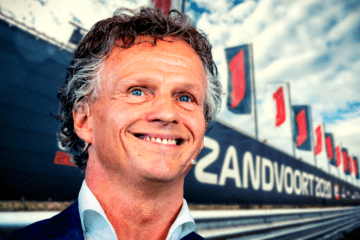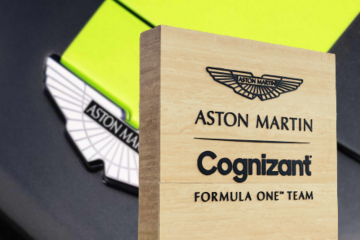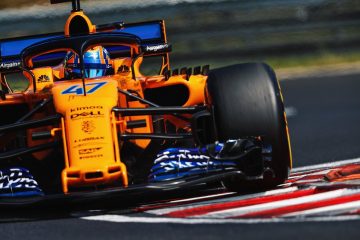John Hogan (1943 – 2021), The Marlboro Man Who Helped Change F1
John Hogan, who passed away from COVID-19 on Sunday, was a man who played an elemental role in the transformation of F1 from a minority interest sport to a global phenomenon.
For more than 30 years Hogan maintained the lowest profile but yielded enormous power, making the reclusive Paddy McNally, a former Hogan employee, look like a drum-beating self-publicist. He was rarely found in glossy magazine lists of influential people in F1 but should have been in the top five, alongside with Elf’s Francois Guiter. They – and Bernie Ecclestone – were the men who brought F1 the money it needed to grow into the huge business it is today.
“Hogie”, as he is known in the business, was born in Australia and first became interested in motorsport at the age of six, thanks to racing movies in the cinema. His father was in the Australian army and when he was posted to Singapore, John was shipped off to a boarding school in England. One of his school friends was a boy called Malcolm Taylor, whose father was a publican near Liverpool and, in 1964, the two old schoolfriends went to see the Aintree 200, an F1-F2 race which was won by Australian Jack Brabham, a day which fuelled Hogan’s passion for the sport. Taylor later became Malcolm McDowell, the celebrated film actor.
Hogan was then a trainee with the Nestlé advertising department in London before working with various London agencies on accounts such as Procter & Gamble and General Foods before moving to Erwin Wasey where he ran the Coca-Cola account. Through another London-based Australian, Tim Schenken, he got to know a lot of motor racing folk and realised that the sport had huge potential for global sponsors. At the time, it was still very novel but Hogan helped to fund several youngsters, providing Coca-Cola sponsorship for rising Scottish star Gerry Birrell in Formula 2 and provide some money for a young James Hunt. In his spare time, Hogan took on the role of marketing manager of Rondel Racing, helping former Brabham mechanics Ron Dennis and Neil Trundle to raise money. Unfortunately, it was not a good time to do that as the Oil Crisis had just hit and there was little sponsorship available.
At the end of 1973, Hogan decided to leave Erwin Wasey and move to Switzerland to work as promotions coordinator for Philip Morris’s Marlboro cigarette brand, which had started sponsoring BRM in F1 in 1972. It was clear to Hogan that the BRM deal was not going anywhere and so in 1973 extra money was found to support Frank Williams, who ran the Iso-Marlboro team. Neither team was a success and so in 1974, Hogan decided to move the Marlboro budget to McLaren for Emerson Fittipaldi. The team won the World Championship that year. In 1975, Ferrari dominated and McLaren was caught out when Fittipaldi decided to quit at the end of the year and went to join his brother’s Fittipaldi Automotive. Hogan played a key role in getting James Hunt into the drive and in 1976 the Englishman won the title.
It was the year that Formula 1 really took off as a television sport. Marlboro recognised the value of this and poured more and more money into F1. In 1977, Hogan helped to get Gilles Villeneuve into a McLaren for his F1 debut, but the team decided not to go with the French-Canadian in 1978 and so Hogan helped to put Villeneuve into a Ferrari beginning a relationship between the Italian team and the tobacco company that continues to this day. This would expand quietly over the years, until first Marlboro was paying the Ferrari drivers’ salaries and then it became the team’s title sponsor.
By 1980, McLaren’s fortunes were waning and Hogan decided things needed to change and forced the team bosses to accept a partnership with Formula 2 team boss Dennis, in what would become known as McLaren International. This was a huge success and a string of World Championships followed with Niki Lauda, Alain Prost and Ayrton Senna. When in 1981 Niki Lauda decided that he wanted to make his F1 comeback he did not go to see Bernie Ecclestone. He went to Hogan. This led to McLaren’s famous 1988 season when Prost and Senna won 15 of the 16 World Championship races, a stunning record. Hogan also funded the Marlboro World Championship team, which oversaw the careers of dozens of young drivers, notably Mika Hakkinen, Eddie Irvine and Alex Zanardi. It also led to Marlboro funding Roger Penske’s efforts in IndyCar and to an involvement in motorcycle racing.
Hogan’s ambition remained to get the brand as the title sponsor of Ferrari but it was not until McLaren’s downturn in fortunes in the mid-1990s that the Marlboro budget was switched to Ferrari. By then Hogan was Vice President of Marketing for Philip Morris and was a key player on the Formula 1 Commission. He would remain in these roles until he retired in 2002 and was then briefly involved with Jaguar Racing as sporting director, before settling back into a consulting role, keeping a low profile, as always. For some years he worked with Zak Brown at Just Marketing, becoming the American’s mentor.
Source: the-race.com


